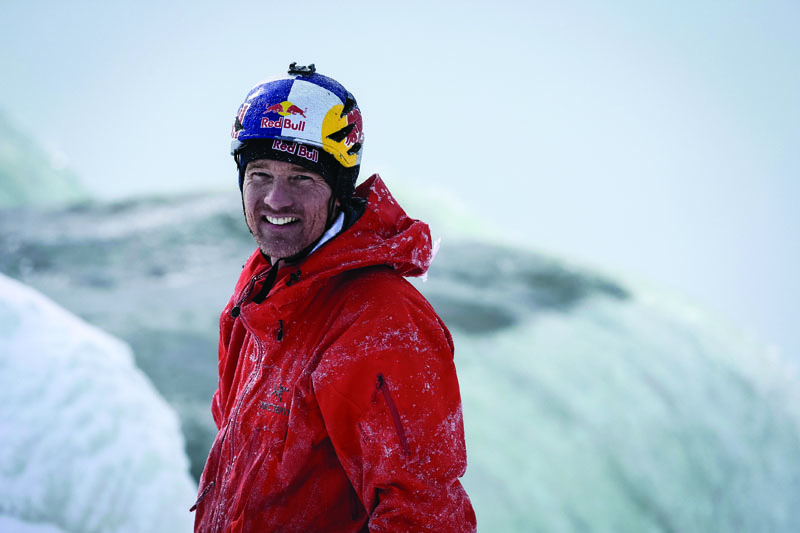Will Gadd discovered his future when, as a 14-year-old, he dipped his paddle in the swirling waters of the Athabasca River deep in the Canadian Wilderness.
The adventure began that day and it continues for Gadd, a 1990 graduate who majored in political science. “I was going to be a lawyer, but other things called,” he said.
Oh, the places he has gone.
Gadd and his paragliding teammate Gavin McClurg were named National Geographic’s Adventurers of the Year for 2014-15, following their 400-mile flight over the toothy pinnacles of the Canadian Rockies. Gadd joins two other CC alumni in receiving this title from National Geographic: Travis Rummel ’01, also honored in 2015, and Renan Ozturk ’02, a 2013 Adventurer of the Year.
In January, Gadd became the first person to ice climb frozen Niagara Falls. And he recently climbed some of the last remaining ice on Mt. Kilimanjaro in Africa – a feat made extremely difficult by the mountain’s oxygen-depriving altitude of 19,000 feet.
But what keeps a 48-year-old man – the father of two daughters, ages 4 and 7 – plying the back country? Where does his motivation originate? And how does he pay for it all?
“It’s interesting,” he said. “That is why I do all these sports. I enjoy going down river and trying to figure out where I’m going and why. It is fascinating and it’s fun as hell.”
Sponsorships and hard work as a guide, writer, and speaker, pay the bills at home in Canmore, Alberta.
“I’m definitely not a trust-fund baby,” he said. “My family is not wealthy. There is no job description for what I do. I just get up every day and make it work. I’m not going to be buying any second homes, but the kids are fed and life is good.”
He has crisp memories of his day at Colorado College, which consisted of this daily schedule: attend classes, do something fun outside, study, socialize, and repeat. He insists CC’s Block Plan helped prepare him for the detailed planning that precedes big adventures.
“The Block Plan is a lot closer to real life,” he said. “I’m still on the Block Plan. I tend to bust ass for a few weeks on a project and then go do something else. That style suited me well and it’s how I continue to run my life.”
He credits T.R. Reid, a visiting lecturer, author of several books, and former correspondent for The Washington Post, and Tom Cronin, CC political science professor, for providing direction.
“T.R. Reid once told me that my writing style could use some work, but without his input I would have never gone to work for Backpacker magazine. Tom Cronin convinced me that I probably did not want to be a lawyer. CC attracts creative people who think differently. I was influenced by so many people there, even the professor who flunked me in Organic Chemistry.”
Making a living as an adventure athlete requires an obsession for being first.
“The thing about first is once you have done it, it’s on to the next thing,” Gadd said. “You don’t need a rearview mirror, you need to look ahead.” The paragliding experience was quickly followed by the first ice climb of Niagara Falls. But Gadd admits he’ll never forget his unpowered flight over a remote and wild Canadian landscape that people rarely – if ever – visit.
“I have a linear film strip in my head of the entire trip,” he said. “I really can visualize that terrain and how it works and why it looks the way it does. It was a complex project and we figured out the unknowns and went forward and got it done. You don’t get many opportunities like that in your life.”
is days do not always include ramblings in wild places. Gadd’s time is largely consumed by meetings, planning, flow charts, email, and phone calls. One hundred people were involved in the Niagara Falls ice climb. He says his greatest accomplishment is taking large teams into hazardous places and keeping everyone safe.
“At Niagara Falls, we were in an environment where people were going to get killed if they stepped in the wrong place,” he said. “There were a lot of layers. I met with everybody from state parks to the local police, even the state botanist. It was a complicated problem to solve.”
